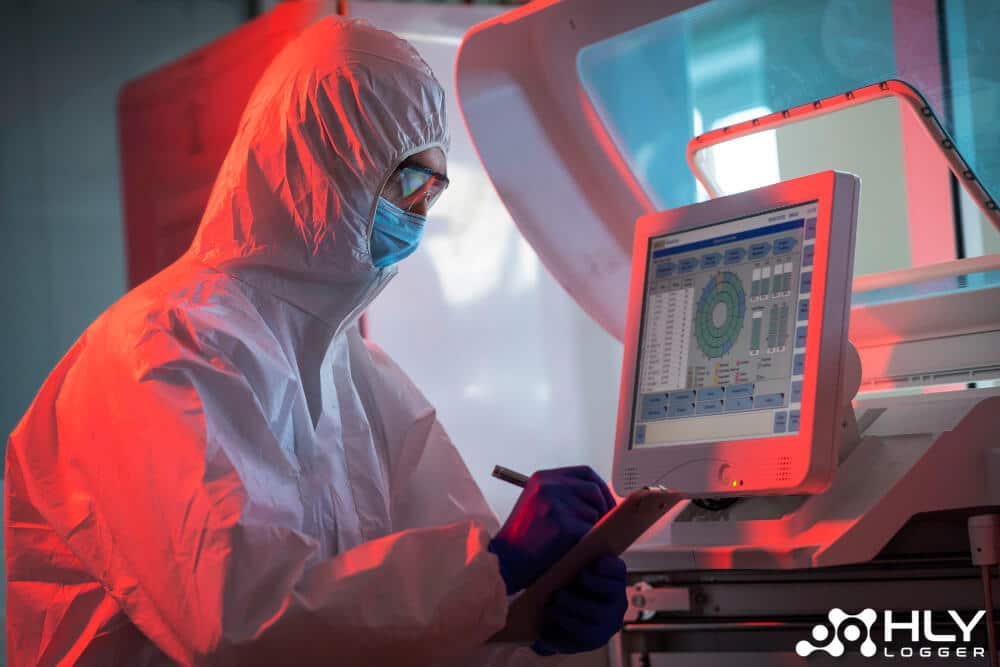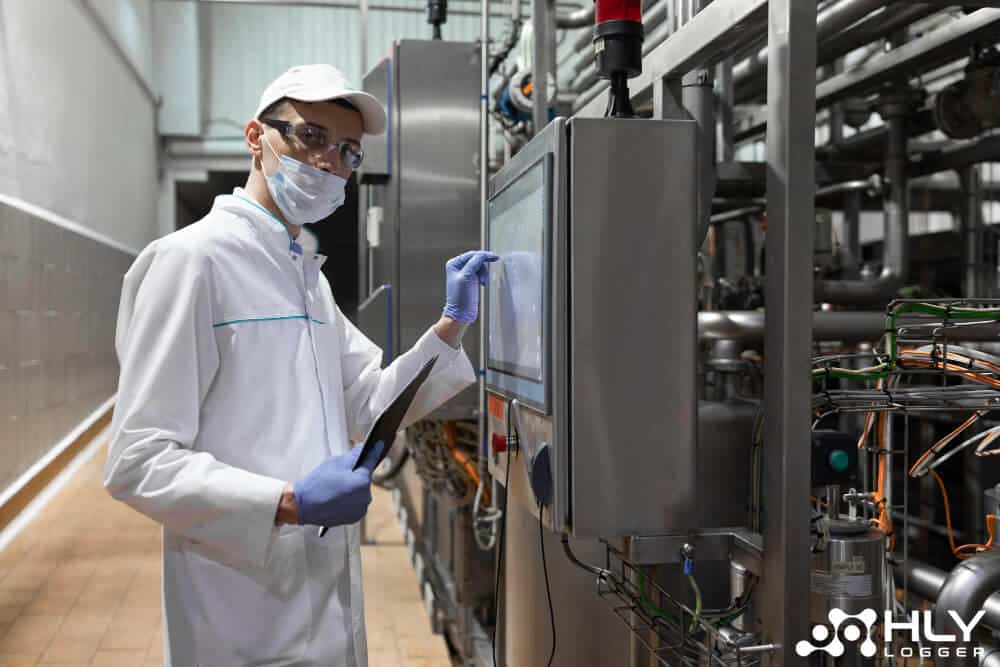High-performance sensors are a key component of temperature monitoring technology, which measures and records temperature data. The system analyzes this data to alert the user if the temperature deviates from the preset range. Temperature monitoring technology employs several types of sensors, including thermocouples, integrated silicon-based sensors, Resistive Temperature Devices (RTDs), and thermistors.
By utilizing advanced sensors, you can significantly reduce the risk of damage to temperature-sensitive goods. The temperature monitoring system operates automatically, providing alerts whenever the temperature exceeds the established limits.
In such cases, the officer on duty can take swift action to restore normal conditions, ensuring that the goods remain safe until they reach their destination. This approach enhances operational efficiency and allows the team to maintain the proper temperature, preserving product quality throughout the entire process.
When selecting the right temperature monitoring technology, consider factors such as ease of installation by technicians, the system’s data collection capabilities, the durability of the hardware, and its applicability across various industries. If many sectors commonly use temperature monitoring technology from a particular brand, it may be a good choice. Additionally, ensure that the device aligns with your business needs.
For instance, if you operate a food business, you will require a temperature monitoring system that helps prevent food contamination by bacteria or other foodborne illnesses. Similarly, many industrial operations depend on effective temperature monitoring to track the temperature of equipment with moving components, thereby detecting potential issues before they lead to damage.
In cold chain logistics, temperature monitoring technology is essential for ensuring that products are safe at the correct temperature throughout shipping and handling.
Contents
How Temperature Monitoring Technology Works

Temperature monitoring technology relies on sensors to measure and record the temperature of an environment. These sensors convert temperature into an electrical signal, facilitating recording and analysis. They consist of two metals that generate voltage when the temperature changes.
A data logger then receives signals from the sensor, recording, storing, and analyzing temperature data. These data loggers can be either wired or wireless and can store large amounts of data over extended periods.
The data from the sensor will be through software in that process which provides a digital solution to alert users if the temperature exceeds predetermined limits.
Temperature monitoring is essential in various industries, including food and beverage, pharmaceuticals, petrochemicals, and HVAC. By utilizing sensors, data loggers, and software, temperature can be in a good maintenance within a specified range, allowing for early detection of any deviations and enabling prompt corrective actions by the staff on duty.
When the system functions effectively, it enhances product safety and quality, reduces food waste, and protects consumer health.
Temperature Monitoring Technology Applications in Various Industrial Sectors
Temperature monitoring technology applications are prevalent in cold chain logistics. This approach is essential for shipping products sensitive to temperature and humidity. Additionally, the food, beverage, pharmaceutical, petrochemical, energy, automotive, and HVAC industries all rely heavily on temperature monitoring sensors. The widespread use of this technology promotes safety, efficiency, and product quality across various industrial sectors.
Cold Chain Logistics
Many goods require specific temperatures to maintain their quality and safety. Food, beverages, and pharmaceuticals are particularly sensitive to temperature fluctuations. Temperature monitoring technology, including sensors and data loggers, ensures that products remain in ideal conditions during transit.
Monitoring, recording, and analyzing temperature are critical for protecting these products. A well-functioning system guarantees that the temperature remains within safe limits throughout storage and transportation, preventing bacterial growth and contamination.
Pharmaceuticals and Petrochemicals
In the pharmaceutical sector, drugs are highly sensitive products. Temperature monitoring technology is vital for storing medicines and vaccines that require specific temperature conditions.
Before storage, it is essential to set the correct temperature to ensure the product’s effectiveness remains stable. In the petrochemical industry, temperature monitoring systems are also crucial for minimizing chemical reactions that could lead to potential hazards.
HVAC
Heating, Ventilation, and Air Conditioning (HVAC) systems require temperature monitoring technology to maintain and control indoor climates. Many people install advanced HVAC systems in their homes and businesses to ensure environmental comfort and energy efficiency. An effective temperature monitoring system with a reliable thermostat simplifies this process.
Energy and Automotive Sectors
In the energy sector, temperature monitoring technology is a critical tool. The energy management industry operates numerous tools and infrastructures where temperature monitoring plays a key role in detecting potential problems before damage occurs. Similarly, the automotive industry utilizes temperature monitoring technology to ensure that temperatures meet specifications during welding and painting processes.
Advanced Temperature Monitoring Solutions from HLY Technology Co., Ltd.
At HLY Technology Co., Ltd., we supply cutting-edge temperature monitoring solutions designed to meet the diverse needs of modern industries. Since 2011, we have provided reliable, high-quality data loggers that support effective temperature management across various sectors. For cold chain logistics, our disposable data loggers offer accurate monitoring for the fast-paced delivery of temperature-sensitive products like food and pharmaceuticals. For more durable monitoring needs, we also offer reusable data loggers and advanced 3G and 4G data loggers that provide real-time monitoring.
Our range of products ensures that temperature monitoring is accurate, easy to implement, and aligned with your operational requirements. Whether you’re managing the cold chain, monitoring industrial equipment, or enhancing HVAC efficiency, HLY Technology’s data loggers are designed to keep your products safe, maintaining quality from start to finish.
Conclusion
Temperature monitoring technology is indispensable for maintaining product quality, ensuring safety, and achieving regulatory compliance in industries where temperature control is critical. High-performance sensors, combined with data loggers and alert systems, provide a comprehensive approach to temperature management, reducing risk and enhancing operational efficiency. By choosing reliable solutions like those offered by HLY Technology Co., Ltd., businesses can protect their products, improve quality, and support sustainable operations.
For tailored temperature monitoring solutions that meet your specific industry needs, contact us today. Let us help you maintain quality and safety with innovative data logging technology.

